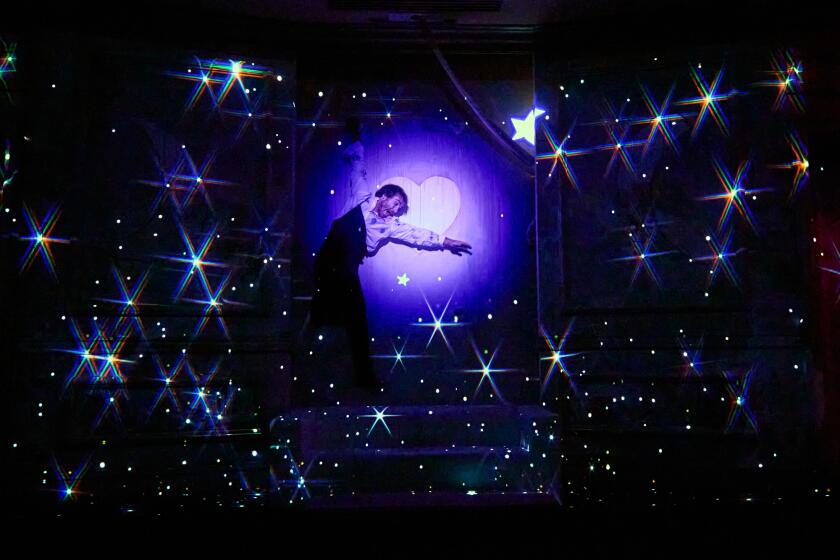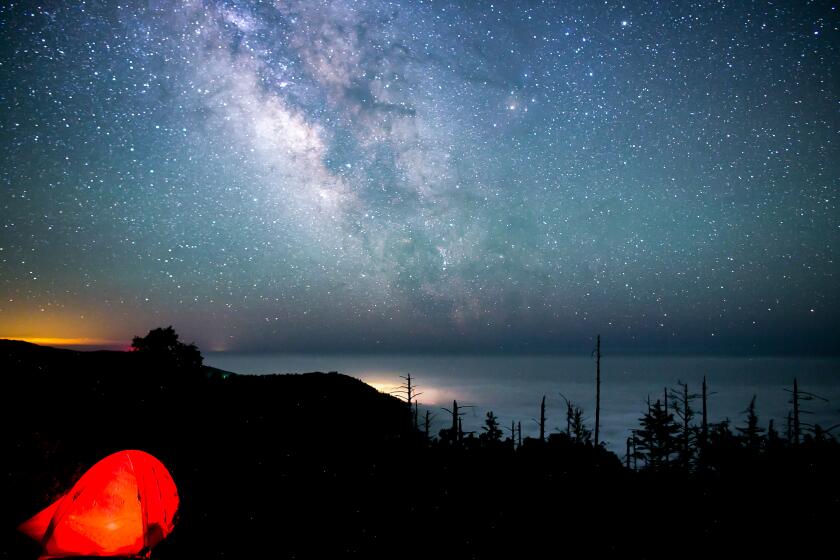Macau Provides a Taste of Europe in the Orient
While only a swift hydrofoil ride from from Hong Kong, Macau is a world away for young travelers thirsting for adventure.
It’s the oldest European settlement in the Orient.
The Portuguese began to use the area--little more than a small peninsula and two tiny islands at the mouth of the Pearl River in southwestern China--as a trading post in 1521. As a thank-you for clearing the local seas of pirates, the Cantonese authorities granted the area to Portugal in 1557.
Macau has flown the Portuguese flag ever since.
Though most of its citizens are of Chinese ancestry, Macau will be linked to the European Economic Community in 1992 because of its relationship with Portugal. It is scheduled to be returned to China in 1999, two years later than neighboring Hong Kong.
Macau’s combination of Chinese/Portuguese history has resulted in a mix of architectural styles and sights. There are, for instance, narrow, European-style cobblestone streets (the stones were brought as ships’ ballast), beautiful Buddhist monasteries, the facade of a Christian church and a harbor of sampans.
Some streets are so similar to those in China that Macau has become a popular location for film producers. But visit the same streets during the third week in November and you’ll find yourself in the middle of an internationally attended, European-style Grand Prix auto race.
Macau won’t have an international airport until 1993. As a result, nearly everyone continues to arrive by sea from Hong Kong, a 40-mile trip. Transportation options range from a three-hour ferry ride, which costs as little as $30 Hong Kong (about $4 U.S.) for an airline-style seat, to a quick 55-minute trip by jetfoil. You must pay a $17 Hong Kong departure tax when you leave Hong Kong.
Young travelers should remember that a good source of information on rates and services is the tourist guide section of the English-language newspaper South China Morning Post.
If possible, avoid visiting on a weekend. The most popular attractions Macau offers are its six privately owned casinos. During the weekend, rates for transportation and accommodations rise as crowds pack the place, eager to place bets.
In general, if you avoid feeding “hungry tigers” (slot machines), your dollar stretches a little further than in Hong Kong. You can arrange accommodations in advance at the Hong Kong Student Travel Bureau office at Room 1021, Star House, across from the Star Ferry Terminal in Kowloon. But staff members advise that if you really want to find budget buys, it’s best to head over on a weekday and search out the guest houses yourself.
You can also get information about Macau from the Department of Tourism desk at Hong Kong’s international airport, and at Shop 305, Shun/Tak Centre, 200 Connaught Road Central, near the departure pier for the Macau ferries.
Both Macau and Hong Kong have long been popular gateway points for entering China. You can still arrange to enter China from either place. Staff at the STB office (who can arrange visas in one or two days) admit that there has been a greater than 60% drop in business since the government’s massacre of the pro-democracy demonstrators in Beijing last June. A visa costs about $7 to $20 U.S., depending on how fast you need it.
Hong Kong has also been popular for budget travelers to shop for economical air transportation. You don’t have to be a student to use the Student Travel Bureau in Hong Kong. Inside the STB’s Star House office is a library room full of guidebooks that can help you plan the next step of your journey.
Fares available during my stop at the office included: Hong Kong to Shanghai, one way on Cathay Pacific, about $150 U.S.; Bangkok, round trip on Gulf Air, $233, and Katmandu, round trip on Dragon Air, $537.
For more information, direct inquiries to D. Lung, Hong Kong Student Travel Bureau, Room 1021, Star House, Tsim Sha Tsui, Kowloon, Hong Kong.
There is no departure tax from Macau, but when you fly out of Hong Kong you must pay $100 H.K. (about $14 U.S.).
Sign up for The Wild
We’ll help you find the best places to hike, bike and run, as well as the perfect silent spots for meditation and yoga.
You may occasionally receive promotional content from the Los Angeles Times.



